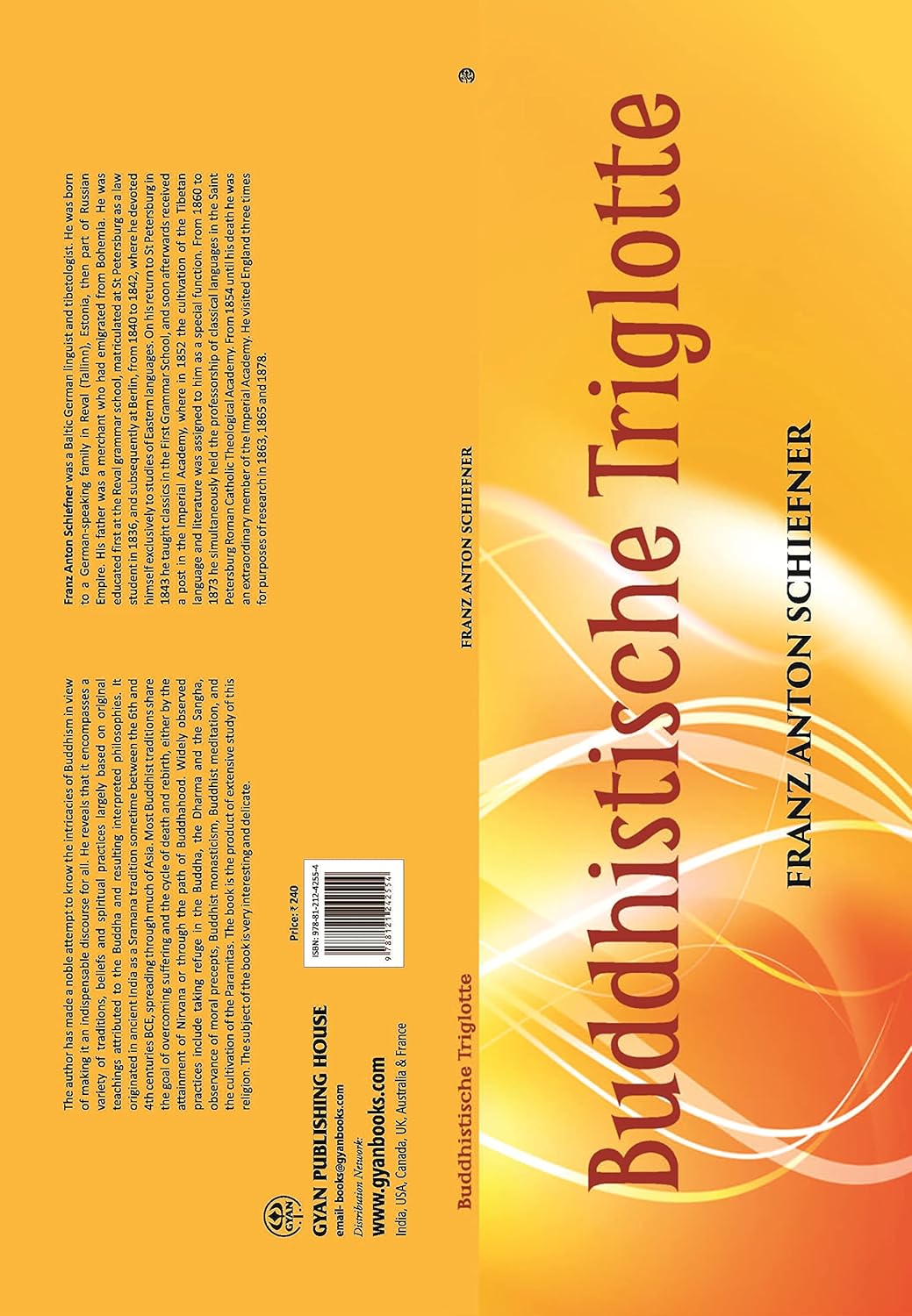Buddhistische Triglotte D. H. Sanskrit - Tibetisch - Mongolisches Worterverzeichniss - PAPERBACK
Buddhistische Triglotte D. H. Sanskrit - Tibetisch - Mongolisches Worterverzeichniss - PAPERBACK
Couldn't load pickup availability
About the Book: - The author has made a noble attempt to know the intricacies of Buddhism in view of making it an indispensable discourse for all. He reveals that it encompasses a variety of traditions, beliefs and spiritual practices largely based on original teachings attributed to the Buddha and resulting interpreted philosophies. It originated in ancient India as a Sramana tradition sometime between the 6th and 4th centuries BCE, spreading through much of Asia. Most Buddhist traditions share the goal of overcoming suffering and the cycle of death and rebirth, either by the attainment of Nirvana or through the path of Buddhahood. Widely observed practices include taking refuge in the Buddha, the Dharma and the Sangha, observance of moral precepts, Buddhist monasticism, Buddhist meditation, and the cultivation of the Paramitas. The book is the product of extensive study of this religion. The subject of the book is very interesting and delicate. About the Author: - Franz Anton Schiefner was a Baltic German linguist and tibetologist. Schiefner was born to a German-speaking family in Reval (Tallinn), Estonia, then part of Russian Empire. His father was a merchant who had emigrated from Bohemia. He was educated first at the Reval grammar school, matriculated at St Petersburg as a law student in 1836, and subsequently at Berlin, from 1840 to 1842, where he devoted himself exclusively to studies of Eastern languages. On his return to St Petersburg in 1843 he taught classics in the First Grammar School, and soon afterwards received a post in the Imperial Academy, where in 1852 the cultivation of the Tibetan language and literature was assigned to him as a special function. From 1860 to 1873 he simultaneously held the professorship of classical languages in the Saint Petersburg Roman Catholic Theological Academy. From 1854 until his death he was an extraordinary member of the Imperial Academy
Share

